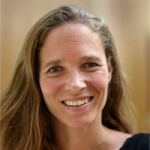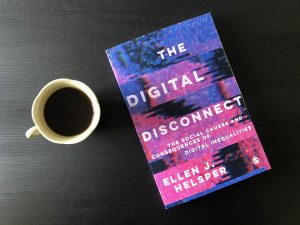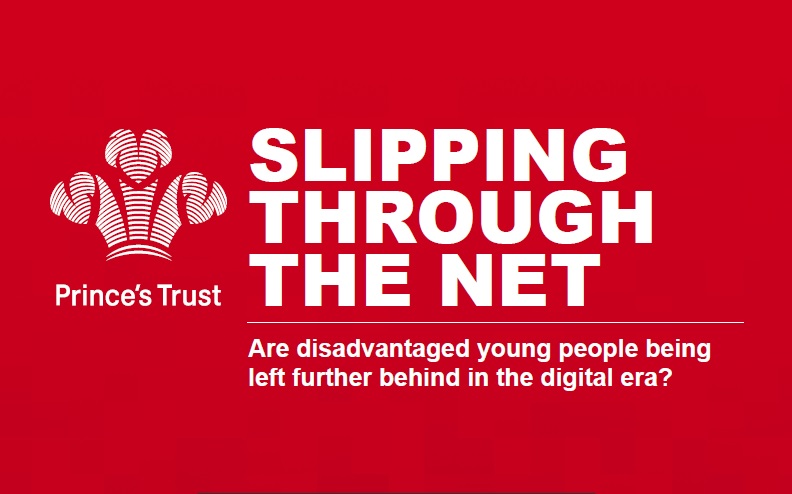 This post reports on an interview with Professor Ellen Helsper from LSE’s Media and Communications Department, who is co-convenor of the Politics of Inequalities Theme at the LSE’s International Inequalities Institute.
This post reports on an interview with Professor Ellen Helsper from LSE’s Media and Communications Department, who is co-convenor of the Politics of Inequalities Theme at the LSE’s International Inequalities Institute.
Inequalities are mostly studied from macro, top-down perspectives. That is, they focus on how societal systems based on unjust structural power relationships (e.g. classism, racism, sexism) have historically shaped and continue to shape unequal distributions of resources and wellbeing. This work is of extreme importance in showing how inequalities are reproduced and increase over time, further disadvantaging particular countries and groups of individuals.
Taking a perspective focussing on bottom-up pathways for change is less common in academia. That is, there is relatively less attention paid to how these inequalities are contested (as well as reproduced) by ordinary citizens. The Politics of Inequalities Theme tries to tackle this aspect of inequalities research by bringing together studies about everyday acts of resistance to and reproduction of inequalities.
What is meant by ‘below’ and what is the resistance that germinates there?
The below or, as I refer to it in my work, the everyday, is where inequalities are experienced. Everyday environments and connections to others shape how we can express ourselves, which opportunities we have, norms and values we hold: we live in households and move through neighbourhoods, we work in specific office buildings or on particular bits of land, we go to certain schools and engage with others in churches and leisure clubs, we do not live in ‘society’ or work in ‘the economy’ at large.
I study socio-digital inequalities because the below is increasingly digital: the digital is the environment in and through which we live our everyday lives, from our interactions with family, friends and colleagues to those with governmental, commercial and social services.
Why should we focus on resistance from below?
While change needs to be structural to be sustainable, the below is where structural inequalities play out, and the only place where real change can germinate. Unless people start finding the inequalities they encounter in their everyday lives and interactions unjust and unacceptable, nothing will change at the structural level. Our experiences and our ability and willingness to recognise and counter inequalities are framed by the people around us, and the physical and digital spaces we inhabit. Unless we see and experience the negative effects of inequalities for ourselves or for people that we can relate to, we will not see the need for change. If no one around us seems to suffer adverse consequences or no one seems to think that inequalities are unfair and unjust, we will not take action to counter systemic inequalities.
How do we incorporate it in our work?
My approach looks at how inequalities are reproduced and contested as societies become increasingly digital. Theoretically, it separates different domains in everyday life and does not assume that if replication takes place in one domain, let’s say the economic one, it also takes place in another, let’s say the cultural or social sphere. In general, we find evidence for the replication of inequalities along historical lines of disadvantage, but this is restricted to specific domains and is not universal. Where people have digital resources in their everyday life, they tend to use information and communication technologies (ICTs) to further those things that are particularly important to them. (This domain-based approach has been partly inspired by Pierre Bourdieu’s thinking around reproduction through capitals. However, it also incorporates Amartya Sen’s approach to contestation by creating societies based on equalities of opportunities.)
High quality access to the digital world, broad and high levels of digital skills and the availability of content tailored to the needs and representative of all in society can provides opportunities to those who have been historically disenfranchised to resist inequalities, represent their interests and participate in ways that they are not able to outside of the digital space (due to structurally unequal distributions of resources).
In general, the pattern of evidence suggests that historical inequalities are reproduced in digital spaces. This is why, under the politics of inequalities theme, I will focus on the exceptions to the rule to examine the possibility of resistance in digital societies. That is, the question I ask is what explains how certain individuals or groups – who we would expect to be excluded based on historical patterns of inequality – are able to counter these in a digital world. For example, those who, despite the historical odds being against them, have digital skills, engage extensively, and have positive outcomes of ICT use.
What would you say is different about your approach to studying the everyday politics of inequalities from below?
This empirical and theoretical work is grounded in a socio-psychological approach based on theories of relative deprivation and ecological frameworks of attitude and behaviour formation. The socio-digital ecology model that I use in my work emphasises the intersections of the social, physical, and digital environments that people grow up in. It is the level and nature of digitisation of the places we live, study and work in, and how we see others like us engaging with digital technologies in these, that determines whether we will feel we should and can counter inequalities in digital societies.
My take on this is further inspired by an intersectional approach such as that proposed by Kimberlé Crenshaw and others, which argues that how inequalities are experienced, accepted and resisted is the result of the coming together of different identity characteristics in specific historical, cultural and physical contexts. In modern life, the contexts that make up our socio-digital ecology are both physical (the house or neighbourhood we live in, the place we work or study at) and virtual (for example, social media or online news platforms).
What is the way forward for the studying of inequalities?
The Politics of Inequalities theme is unique in how it foregrounds theories of change as opposed to mere descriptions of the existence and perpetuation of inequalities, which is a tendency too often found in the study of inequalities, especially in my field which looks at the links between social and digital inequalities. In addition, it puts centre stage those who are often studied or talked about but do not have their voices heard or their solutions and experiences taken seriously, but from whom real change eventually must come. It also implicitly argues against the abdication of responsibilities to leaders and armchair criticism and puts the ball back in all our courts since we all use and participate actively in and thus co-create digital spaces.
 As I argue in the book Digital Disconnect, all our everyday actions in the digital world, from the liking of one post and not another, to the clicking on a certain news item and not another, to the uploading of a video about one thing and not something else will have consequences for what people who enter this digital world after us will see and experience. Therefore, the everyday actions of all of us are an opportunity for resistance to inequalities and injustice.
As I argue in the book Digital Disconnect, all our everyday actions in the digital world, from the liking of one post and not another, to the clicking on a certain news item and not another, to the uploading of a video about one thing and not something else will have consequences for what people who enter this digital world after us will see and experience. Therefore, the everyday actions of all of us are an opportunity for resistance to inequalities and injustice.
This article represents the views of the author and not the position of the Media@LSE blog, nor of the London School of Economics and Political Science. To learn more about the LSE Department of Media and Communication’s research, please sign up to our Media@LSE newsletter here.




